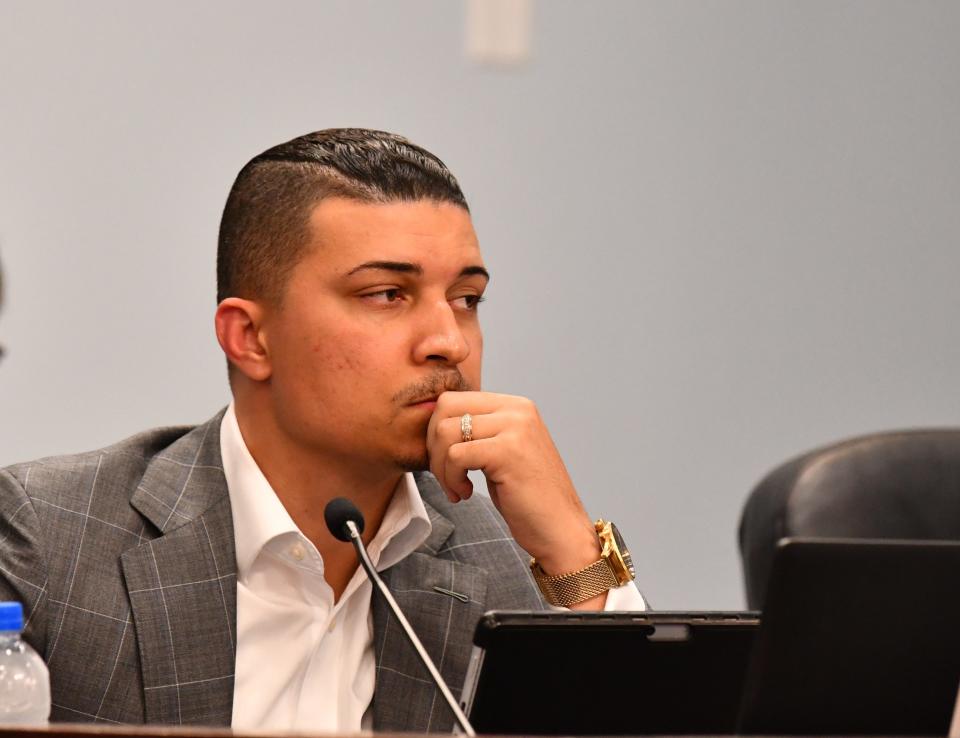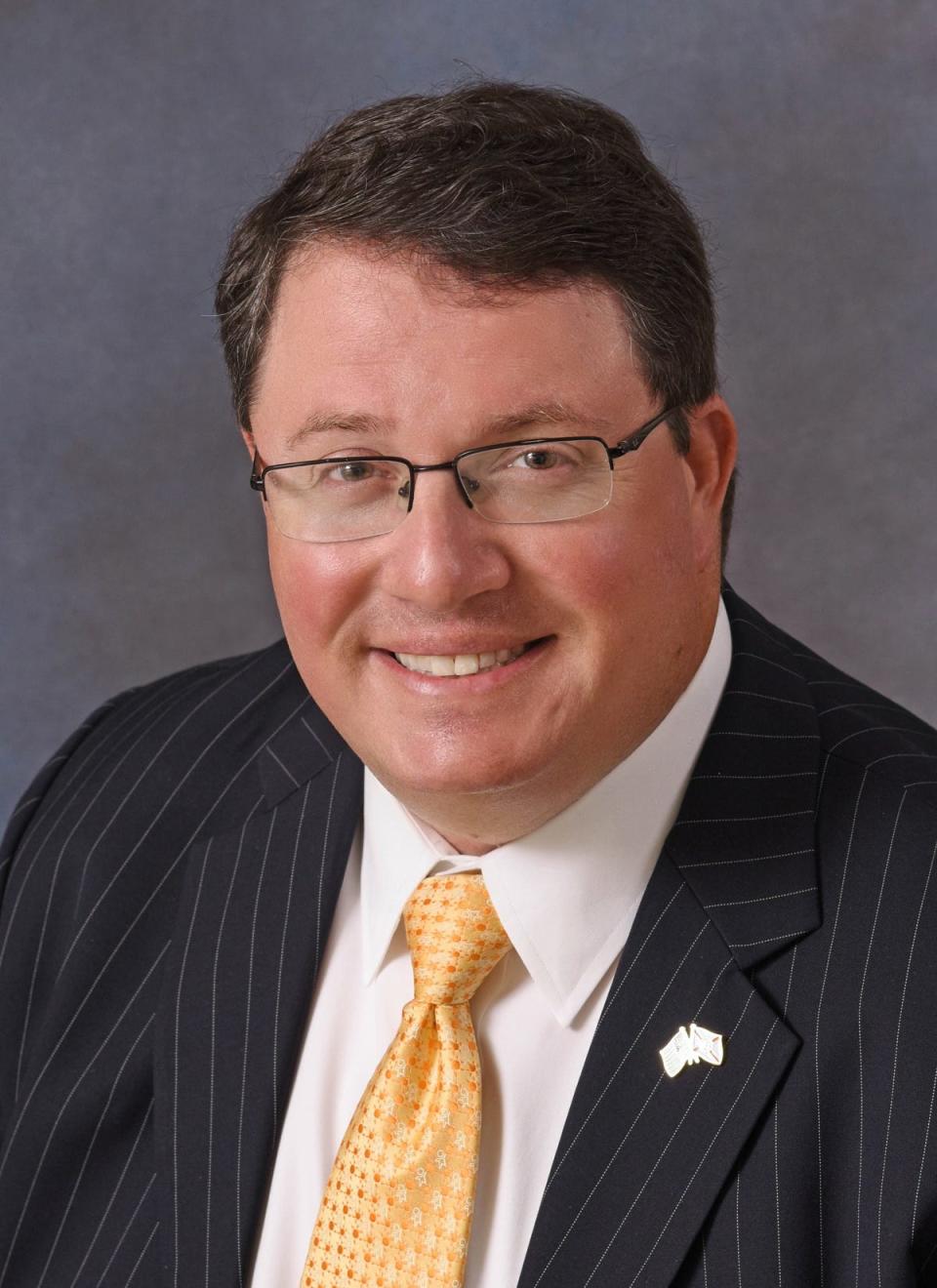Brevard County commissioners OK adding flexibility to use of tourist tax revenue
Brevard County commissioners have unanimously approved changes to how the county's 5% tourist development tax can be used, potentially expanding the opportunity to use revenue from the tax for everything from affordable housing initiatives to infrastructure projects to help the Indian River Lagoon.
The tax is levied on the rental of hotel and motel rooms, as well as on other short-term rentals.
Commissioners Tuesday night voted 4-0 in favor of a proposal by Chair Kristine Zonka to allow the tax to be used to "acquire, construct, extend, enlarge, remodel, repair, improve, maintain, operate or finance public facilities within the county, if the public facilities are needed to increase tourist-related business activities in the county."
Charter amendments OK'd: Voters OK changes to charter, allowing for school board recalls, affordable housing fund
Palm Bay's plan: Palm Bay City Council approves $5M for affordable housing programs
2022-23 budget year allocations approved: Brevard commissioners approve 10 grants for projects to help restore Indian River Lagoon
That use already is allowed by state legislation spearheaded by Florida Rep. Randy Fine, R-Palm Bay. But, until now, Brevard County had not added that provision to its local ordinance for use of the tax.
"This would just add that tool to the toolbox" for use of the tax locally, Brevard County Attorney Morris Richardson told commissioners.
Fine, though, contends that affordable housing isn't something that could be covered by the tourist tax. He said using revenue from the tourist development tax to help fund housing "would be a grossly illegal use" of the tax.
Charter change supports housing
Zonka has been an advocate for affordable housing. also known as workforce housing. One of her appointees to the Brevard County Charter Review Commission, Jordin Chandler, introduced a proposed change to the county's charter to address that issue.
Under the "workforce and supportive housing" charter change — which Brevard voters approved in the Nov. 8 election, with 53% support — an affordable housing trust fund was created that would be funded through the sale of surplus lands or by an ordinance passed by the County Commission.
In her agenda report to other county commissioners related to the changes in the tourist tax rules approved Tuesday, Zonka wrote:
"The Board of County Commissioners has expressed interest in using unallocated tourist development tax revenues to support Brevard County’s tourism and hospitality workers through workforce housing initiatives. The board could reasonably conclude that a future public facilities project to provide or support workforce housing is needed to increase tourist-related business activities in the county."
Under state statute, these conditions must be met before Brevard County could use the tax for such a purpose or for other purposes that the ordinance amendment allows:
The project is recommended by the Brevard County Tourist Development Council, a nine-member advisory board appointed by county commissioners.
The county must collect at least $10 million in tourist development tax revenue in the previous budget year. Brevard County collected a record $23.31 million from the tax in the budget year that ended Sept. 30.
The County Commission must approve the use for the proposed public facilities by a vote of at least two-thirds of its membership. In Brevard, that would be four of the five commissioners.
No more than 70% of the cost of the proposed public facilities will be paid for with tourist development tax revenues, and sources of funding for the remaining cost are identified and confirmed by the County Commission.
At least 40% of all tourist development tax revenues collected in the county are spent to promote and advertise tourism.
An independent professional analysis, performed at the expense of the county Tourist Development Council, demonstrates the positive impact of the infrastructure project on tourist-related businesses in the county.
Chandler said that, since he first proposed his affordable housing charter amendment in May, "I knew what challenges we were faced with, and what it would take to shift people's minds and hearts, and change the stigma associated with affordable housing."

"I think the results spoke volumes, but I am cognizant that there is still much more work to be done," Chandler said, in discussing voter approval of the charter amendment. "I am grateful to every individual who cast a vote on this amendment, whether for or against this ballot initiative, because it shows that you were engaged in the process, and that is all that I could have asked for. I intend to see this process through until the very end, because I want to ensure that we are leaving no stone unturned to ensure that this trust fund truly works for the residents of Brevard."
'A little more flexibility'
Zonka said the tourist development plan update to the county code that commissioners approved Tuesday does not specifically allocate money to any new project, but does "give us a little more flexibility in the future."
"We worked hard to come up with a plan that would keep us within the law and allow us to at least expand the possibility of use" of the tourist development tax "for other opportunities," Zonka said. "This doesn't categorize anything. This doesn't necessarily commit anything."
But, Zonka added, it does allow the Tourist Development Council to make recommendations that will come back to the County Commission, "and we can make a little bit modifications to the plan to address some other issues that impact our tourism industry."
Fine, however, was not happy that his state legislation now is being tied to the potential for use of the tourist development tax for affordable housing.

“I don’t believe any interpretation of the bill would allow for that,” Fine said Wednesday. “That would be a grossly illegal use of the tourist development tax. The reason I ran the bill was that the County Commission was wasting money.”
Fine said he pushed the bill in Tallahassee after Hurricane Irma had hit the state in 2017, and the county had released raw sewage into the Indian River Lagoon. Around that time, Fine said, county commissioners allocated tourist tax money toward such things as a basketball arena, a recreational-vehicle park and lighthouse museum.
“That was insane,” Fine said. “If your sewer system doesn’t work, that is your fundamental job.”
The Florida Legislature in 2018 approved an amendment to the act that details how a county can spend its tourist development tax revenue, so that counties can use the tax revenue for public facilities, if they are needed to increase tourist-related business activities. But Brevard County's tourist development plan until now did not include such public facilities as an authorized use of the tax collected locally.
Fine had envisioned the levy as a way to provide an additional funding source for infrastructure projects to help clean up the Indian River Lagoon. He crafted the legislation to allow the tourist development tax money to be spent for infrastructure projects that are directly tied to tourism.
Fine said an example of such a project would be the construction of an offramp leading to the planned aquarium at Port Canaveral.
“Housing would not meet that definition by any interpretation,” Fine said.
He added that the County Commission’s logic could extend to a whole host of projects, such as the construction of a new police station, because the facility provides security for tourists visiting the area, or for a fire station.
County Commissioner Rita Pritchett — who also chairs the Tourist Development Council — on Wednesday said, while nothing is final yet, she would support using some of the tourist development tax revenue for a workforce housing initiative.
Pritchett said the County Commission's action on Tuesday "opens up options for what our community wants," adding that she has confidence in Richardson to advise commissioners on what is legal for the use of the tourist tax revenue.
How tax is allocated
The largest share of Brevard's tourist development tax — 47% — goes toward a comprehensive plan to market the Space Coast as a destination for tourists.
The rest of the money is distributed for various purposes: 25% for beach improvement, 14% for tourism-related capital facilities, 5% for the Brevard Zoo in Viera, 4% for cultural events, 3% for the USSSA Space Coast Complex in Viera and 2% for visitor information centers.
Any money the county allocates under its more flexible guidelines would come out of the 14% for tourism-related capital projects.
Before the change approved Tuesday, that fund could be used only to "acquire, construct, extend, enlarge, remodel, repair, improve, maintain, operate or promote" convention centers, sports stadiums, sports arenas, coliseums or auditoriums within the county; as well as museums, zoological parks, aquariums, fishing piers or nature centers which are publicly owned and operated or owned and operated by not-for-profit organizations and open to the public within the county.
Dave Berman is business editor at FLORIDA TODAY. Contact Berman at dberman@floridatoday.com. Twitter: @bydaveberman.
Ralph Chapoco is government and politics watchdog reporter. You can reach Chapoco at rchapoco@floridatoday.com and follow him on Twitter @rchapoco.
Support local journalism and journalists like me. Subscribe today.
This article originally appeared on Florida Today: Brevard hotel tax can be used for more things under ordinance change

